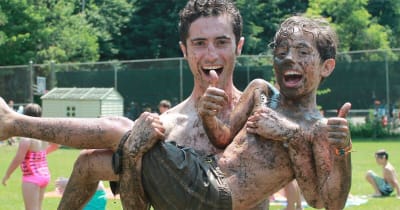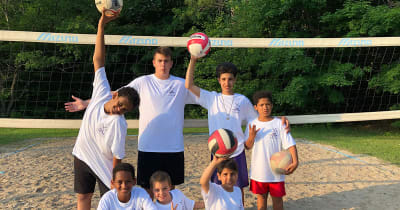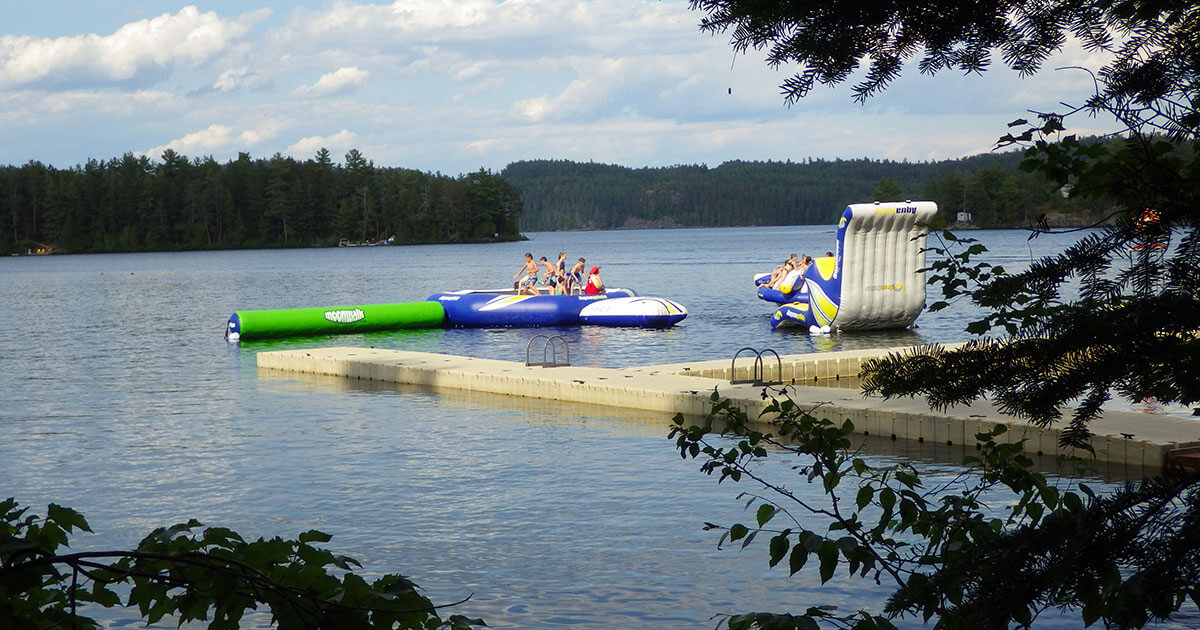“I’m definitely well versed in Benadryl,” says Mukherjee. “I always use it proactively … Narayan has asthma, so I’m especially cautious when I send him anyplace outdoorsy.” Narayan goes to Camp Kahuna, just north of Burlington. “I send him to camp with Benadryl because he tends to have bad reactions when he’s exposed to anything."
It usually begins with tree pollen, typically in April or so and lasting through June. Then, it’s the grass pollen that begins circulating, which lasts roughly from May through July. Ragweed, finally, begins in mid-August and takes us through Labour Day. And of course, there’s the bugs, and the bites, and the poison ivy. For kids that are acutely affected, it can make for a long summer.
“I send him to camp with Benadryl because he tends to have bad reactions when he’s exposed to anything. So, I always use it proactively."
#1: Know what you’re dealing with
A person who is allergic has an antibody that is programmed to recognize a specific protein. When activated, it stimulates the production of histamine. In some, the production of histamine is exaggerated and causes the various symptoms we associate with allergies: swelling, sneezing, redness, itch. “If [histamine] is released in the skin,” says Dr. Jason Ohayon, a clinical immunologist on staff at McMaster University “we get a hive; if it’s released in the nose, we start to sneeze and get hay fever; if it’s released in the eye, we get a conjunctivitis and we get a red eye.”
#2: Be prepared
“It’ll interfere with sleep, and sports,” says Dr. Susan Waserman, a professor of medicine at McMaster University’s division of clinical immunology and allergy. “The message is ‘be prepared.’” That includes sending kids away with whatever they will need to address any reactions. “The medications do need to follow the child,” says Waserman. “You want them to enjoy the summer. A lot of parents think the summer is a drug holiday, and that there’s no need for medications, but that’s not the case.”
Certainly, it’s hard to know exactly what kids will encounter at camp, and even if they attend the same session each summer, exposure can vary due to weather patterns. Still, it’s nice to know that the most common reactions, by far, are also the most benign: hay fever and mosquito bites. Not everyone reacts, though the vast majority do, particularly in the case of mosquitos.
#3: Plan for a fun-filled, itch and sniffle-free summer
To cover it all, Mukherjee leaves Benadryl™ liquid with the counsellor (“He likes the bubble gum flavour.”) which is typical at camps when using any oral medication. Topical therapies used externally, such as Benadryl’s Itch Stick™, can be applied by the child, and camps typically don’t require that they be handled only by staff.

The sooner we get on top of reactions, the better. For both the big and small, it’s best to be armed with the right tools and knowledge to turn the situation around, and to get kids back at what they should be doing: having fun outdoors, from the beginning of the tail end of spring until they’re back to school in the fall.
•








